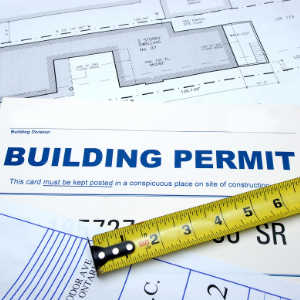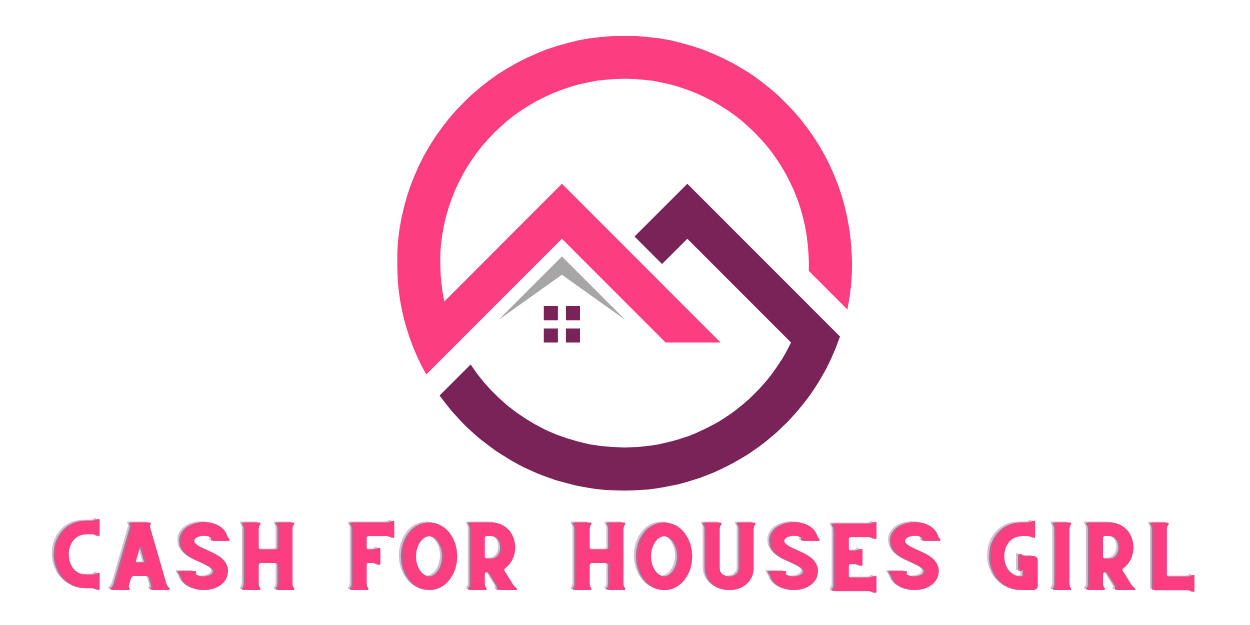
Understanding Unpermitted Work in Real Estate Transactions
Selling a house with unpermitted renovations in Norfolk, Virginia, poses particular obstacles in real estate transactions. Understanding unpermitted work is critical for both homeowners and potential buyers.
Unpermitted work is defined as renovations or enhancements carried out without the proper authorization or permits from the local authorities. In Norfolk, this can involve structural changes and electrical or plumbing upgrades that city officials have not examined or permitted.
Unpermitted work in Norfolk homes includes finished basements converted into living spaces without the necessary permits, kitchen or bathroom renovations that skipped inspections, electrical upgrades such as new circuits or rewiring without approval, plumbing modifications such as adding new fixtures or rerouting pipes, and exterior additions such as decks, sheds, or garages built without proper zoning authorization.
Such improper work can cause compliance concerns, reduce property values, and complicate the sale process. Buyers may hesitate to purchase a home with unpermitted improvements due to potential safety risks, prospective legal obligations, and the price of bringing the work up to code.
Sellers should be prepared to reveal any unpermitted work up front, and explore getting retroactive permits or negotiating repair credits as part of the sales contract. Understanding these dynamics is critical for negotiating the intricacies of real estate deals involving properties with unpermitted work in Norfolk, resulting in smoother talks and more satisfactory solutions for all parties.
But here’s some good news — if you need to sell your Norfolk house fast, you don’t always have to fix everything first. Cash For Houses Girl specializes in buying homes as-is, even if they have unpermitted work, outdated wiring, or unfinished renovations. Whether in Norfolk, Virginia Beach, Chesapeake, or Portsmouth, you can request a cash offer and skip the lengthy permitting and repair process.
Legal Implications of Selling a Home with Unpermitted Work

When selling a house in Norfolk, VA, with unpermitted work, it is critical to understand the legal ramifications. Unpermitted work is defined as repairs or alterations performed without the requisite authorization from local building authorities, and these issues can substantially impact your property’s marketability and value.
One of the most critical legal factor is disclosure. Sellers must advise potential buyers about any known unpermitted work, as failure to disclose such information can result in lawsuits, financial penalties, or post-closing issues. Furthermore, unpermitted work may not conform to local building codes, causing safety hazards and complicating insurance claims.
Properties with code breaches may pose financial and legal risks to buyers. Homeowners may face significant fines from local authorities if a property fails to satisfy code requirements. If the work is not allowed correctly, insurance firms may charge higher premiums or refuse to cover it. In other situations, buyers may be required to make costly repairs or alterations to bring the home up to code, which might lower a property’s resale value and discourage offers.
These concerns frequently necessitate acquiring retroactive licenses or employing licensed contractors to bring the work up to current requirements. While this procedure can be time-consuming and costly, addressing these concerns early on helps to minimize legal difficulties and promotes negotiation transparency.
How to Find Unpermitted Work Before Listing Your Home
Identifying unpermitted work is critical while preparing to sell a home in Norfolk, VA, to avoid difficulties during the transaction. Begin by researching property records at the local building department and comparing existing permits to the changes made to your home.
Pay particular attention to remodeling in places like basements, kitchens, and bathrooms, where unpermitted work is everyday. Look for indicators of unapproved modifications, such as mismatched materials, unfinished appearances, or structural changes that do not correspond to the original layout.
A professional home inspection is one of the most efficient methods for detecting hidden code problems and unpermitted activity. Home inspectors are trained to look for discrepancies between recorded permits and the property’s condition. They can detect problems such as unapproved electrical or plumbing upgrades, structural changes that avoid inspections, and safety concerns that are not evident to the untrained eye.
Engaging a certified home inspector familiar with Norfolk’s building codes provides homeowners with important information and a thorough examination of potential problems. By detecting these concerns early, sellers can solve them proactively by acquiring retroactive permissions or making necessary repairs, resulting in smoother transactions and increased buyer confidence.
However, if you discover significant unpermitted work and want to avoid delays, Cash For Houses Girl can buy your home as-is in Chesapeake. No inspections, no repairs, and no waiting for city approvals — just a smooth, fast closing.
Steps to Follow If Your Norfolk, VA Property Has Unpermitted Additions
If your Norfolk, VA, property contains unpermitted additions, you must address them before selling. Begin by doing a thorough examination to detect any unpermitted work.
Hiring a trained house inspector familiar with local building rules in Norfolk might provide helpful insights. Once you’ve found the unpermitted additions, contact Norfolk’s planning and zoning department to learn about the precise regulations and potential penalties associated with these changes.
It may be essential to seek retroactive licenses for the work done, which could entail engaging qualified builders to bring any non-compliant structures up to code. Accurate documentation is crucial; keep track of permits acquired, work undertaken for possible buyers, and regulatory requirements.
Consider talking with a real estate attorney knowledgeable about Virginia’s unpermitted labor laws to handle legal repercussions. Engaging a professional real estate agent who understands the Norfolk market will assist you in effectively marketing your property while transparently communicating these difficulties to potential purchasers, assuring compliance and avoiding future disputes.
The Effect of Unpermitted Work on Home Valuation in Norfolk, Virginia
Unpermitted work can substantially impact home valuation in Norfolk, VA, posing issues for sellers and purchasers. When a property has unpermitted extensions or renovations, appraisers may struggle to assign an adequate value since these alterations violate local construction standards and regulations.
Buyers often make lesser offers on homes with unpermitted construction because they are concerned about potential legal liabilities, safety issues, and the future costs of bringing the work up to code. Lenders are also cautious and may hesitate to grant mortgages for houses with outstanding permit issues due to the increased financial risk.
Buyers still have financing choices when buying a house with unpermitted construction. Renovation loans, such as FHA 203(k) and Fannie Mae’s HomeStyle Renovation mortgages, can cover both the purchase price and the cost of any renovations required to bring the property into compliance. While these loans are flexible, they need thorough inspections, contractor estimates, and local clearances.
Hard money loans can be an option for buyers who cannot obtain regular financing. These short-term financing options with higher interest rates are frequently used when rapid closings are required. While risky, they can assist purchasers who cannot obtain conventional loans.
Understanding the financing issues is crucial for sellers when valuing a home with unpermitted construction. Being open about potential permit concerns and supporting purchasers in researching available finance choices will boost marketability and make negotiations easier.
Strategies to Resolve Permitting Issues Before Sale

When selling a house in Norfolk, VA, with unpermitted renovations, it is critical to address any permitting concerns before offering the property. One good technique is to undertake a thorough inspection to detect any unpermitted modifications or additions.
Engaging a knowledgeable local contractor who understands Norfolk’s building rules can be extremely helpful in determining the scope of work required for compliance. When hiring a contractor, always ensure they are licensed, insured, and competent in rectifying unpermitted work. Check reviews, request references, and check that they have a track record of successfully navigating Norfolk’s permitting systems.
Once you’ve identified the issue areas, collaborate with your contractor to devise a strategy to bring the property up to code. This could entail acquiring retroactive permissions by submitting comprehensive drawings to the city’s permitting office and paying applicable fees. Additional repairs or modifications may be required to fulfill safety and building regulations; they should be incorporated into your timeframe and budget.
Establish that your contractor has obtained all necessary permits before beginning work to avoid further compliance concerns. Regular communication and updates are required to guarantee that corrections are handled legally and promptly.
Hiring an experienced real estate agent knowledgeable about the Norfolk market can also provide strategic assistance in handling disclosures and negotiations involving unpermitted work. Correcting these concerns minimizes legal complications and improves your property’s appeal to potential buyers, enhancing trust and marketability.
Negotiating the Sale of a House with Known Permit Violations
Negotiating the sale of a Norfolk, VA house burdened by undisclosed permit violations demands a balanced blend of candor and tactical foresight. Prospective purchasers inevitably regard unpermitted work as a latent liability; disclosing the relevant deficiencies forthrightly allows the seller to transform what might otherwise be a deal-killing surprise into an opportunity to cultivate goodwill and facilitate expedient discussion.
Competency in the rigour of Norfolk zoning statutes and permit workflows is indispensable. Establish the specific violations, their narrational history, and the anticipated remedial pathway. Obtaining a detailed restoration estimate enumerating labour and municipal fees informs the seller’s bottom line and supplies a quantified tactical lever during negotiations.
Price adjustments, seller concessional credits, or other financial scaffolding averted by allowing the unpermitted deficiencies can materially mitigate the buyer’s perceived acquisition risk. Aligning your strategy with an agent versed in Norfolk’s statutes and the nuances of improper work will maximise the precision with which you employ these devices. Their advice will reveal potential trade-offs and identify the pragmatically achievable recourse the market will accommodate.
Lastly, pre-empt confusion related to title insurance exclusions or prospective third-party risk by concisely and candidly outlining the nexus of the violations to the transaction’s closing. Transparent documentation of any ongoing or anticipated remedial actions will, as much as the estate’s current configuration, structure the buyer’s risk calculus and thereby predispose them to a faster and more coherent settlement in the currents of Norfolk’s competitive market.
Disclosure Requirements for Sellers in Virginia Real Estate Deals
Property vendors in Virginia must rigorously observe the disclosure obligations attendant upon the sale of dwellings in the presence of unpermitted construction in the City of Norfolk. The Commonwealth mandates the completion and delivery of a Residential Property Disclosure Statement that compels the vendor to itemize all known material defects pertinent to the dwelling.
Although Virginia follows a predominantly “buyer beware” doctrine obligating the purchaser to investigate reasonably, the vendor remains bound to reveal significant adverse property characteristics that could reasonably be expected to influence market value or desirability. Unpermitted construction falls within this ambit because such alterations may implicate safety and building-code compliance and, therefore, may materially affect a purchaser’s intended use and assessment of risk.
Omission of pertinent disclosure may expose the vendor to remedial litigation. Transparent acknowledgment of any unpermitted work satisfies statutory obligations. It concurrently fosters the vendor’s superior credibility, smooths the negotiating landscape, enhances the property’s market presence, and mitigates the prospective purchaser’s perception of hidden risk.
How to Obtain Retroactive Permits for Past Renovations in Norfolk, Virginia
Securing retroactive permits for renovations without documented authorization is prudent, especially before listing a property for sale in Norfolk. The initial step is to compile all relevant documents, including purchase receipts, contractor proposals, as-built plans, and photographs. These papers will help confirm that the initial work adhered to most applicable building and safety codes.
Subsequently, a consultation with the Norfolk Department of City Planning is indispensable. City staff will clarify whether the modifications are subject to permitting and outline the specific code sections that govern the work. Depending on the complexity of the renovations, a certified third-party inspector may be engaged to assess compliance with contemporary safety provisions.
If the inspection reveals code deficiencies, the property owner must implement corrective actions. Partnering with a licensed contractor who thoroughly understands Norfolk’s zoning ordinances and the inspection process is advisable; such expertise can minimize turnaround time, streamline rework, and permit submissions.
The permit application will necessitate submitting design documents, inspection reports, and, in certain instances, affidavits by licensed professionals. The submission will also incur standard permitting fees. Despite the initial burden of documentation and expense, the permits create a legally verifiable history of compliance, allowing the property to be marketed without disclosure of unpermitted work—thereby safeguarding the sale and affording the buyer greater transactional security.
Navigating Building Codes and Permit Regulations for Unpermitted Work in Norfolk, VA

Virginia home sellers whose properties include unpermitted renovations confront specific liabilities under the Norfolk municipal code. These voluntary but binding instruments set standards for structural soundness, efficient land use, and residential livability. Work without the requisite prior approvals exposes sellers to extended diligence and potential transaction disruptions.
Unfiled or unauthorized construction introduces liabilities that may calcify at the closing table. Prospective buyers, who customarily engage in risk pricing, may discount the sales price or, more critically, may withdraw contingently upon permitting review or upon discovering code deviations. Preceding construction without permits may trigger body-serious deviations in existing zoning and require restorative demolition upon inspection.
Remedial permitting—filling records, retroactively obtaining material and structural permits, and providing plans for review—remains the most reliable mitigation path. However, retroactive approval does expose sellers to all applicable fees and potential rectification of affirmed code deficiencies. Property owners are encouraged to pre-approve total inspection, avoid resignation stations, and initiate closing escrow.
A proactive strategy requires a coordinated assembly of expertise. Each seller should engage Norfolk’s Permitting Office or Building Inspector before showing the first material. Vendors should also consult licensed representatives fluent in Virginia’s license laws. Thus, transaction strategy is coupled with statutory compliance and deference to the municipal Cape Town governance nexus, streamlining sales momentum without disenfranchising discovery costs.
Can You Sell a House with Unpermitted Work?
Selling a house in Norfolk, Virginia, that contains unpermitted construction is undoubtedly complicated, but a successful transaction remains possible with a measured strategy. While disclosures include repairs or additions completed without a permit, homeowners contemplating a sale must familiarize themselves with municipal codes and typical buyer risk perceptions.
The presence of unpermitted work demonstrates the finished curb appeal of the finished house, but it may simultaneously diminish perceived value and narrow the buyer pool. To guard against reputational risk and preserve salability, sellers must disclose such work as an essential line item before a listing agreement is signed.
Mitigating the downside posed by unpermitted work generally entails either pursuing retroactive permitting or clearly delineating a path to compliance and any anticipated impacts on closing. An experienced Norfolk listing agent can furnish stratified intelligence on the risks of relegating and tactical formulations for pricing, language, and terms of sale that prod lenders into tolerating the deficiency.
Shapes negotiation. Sellers sometimes remedy the violation through municipal measures, price to reflect the uncertainty, or institute contingencies such as escrow holdbacks. The rights of the decision table are the risk for the rational buyer to spend their money.
What Happens If the Previous Owner Performed Unpermitted Work?
When acquiring real property in Norfolk, Virginia, prospective purchasers must evaluate the risk posed by unpermitted renovations executed by the prior owner. Such alterations, lacking municipal authorization, can encumber the successor grantee through prohibitive risk, antedating property value depreciation and transaction continuity, and present financial obligations for damages.
During the title procurement, the observant third-party inspection, employed in Norfolk, may expose alterations executed without municipal permits, focusing attention on unregulated electrical safety, structural measures, or plumbing ventilation. Therefore, the consecutive grantee is instructed to effectuate disproportionately fortified repairs or initiate clandestine retrospective approval through the permitting procedure. Neglect of this route musters the restriction without the limiting binding regulations and could risk insurance voidance and the application of municipal fines.
Mitigating the foregoing risk requires counsel from licensed real estate practitioners with demonstrable competence in Norfolk procedural and building protocols. Such expertise will prescribe tactical approaches to obtaining the requisite retrospective approval. It will ensure that future dispositions attract commercial value and are resolutely compliant with jurisdictional tiles before or contemporaneous with marketing.
Mitigating the foregoing risk requires counsel from licensed real estate practitioners with demonstrable competence in Norfolk procedural and building protocols. Such expertise will prescribe tactical approaches to obtaining the requisite retrospective approval. It will ensure that future dispositions attract commercial value and are resolutely compliant with jurisdictional tiles before or contemporaneous with marketing.
Are Sellers Required to Disclose Unpermitted Work?
Sellers must grasp their obligation to disclose unpermitted alterations when transferring residential property in Norfolk, VA. The relevant Virginia statute mandates the declaration of any known defect that could substantially diminish value or present a safety hazard.
Unpermitted work, by its nature, meets both criteria, rendering full disclosure not optional but obligatory. Such alterations often affect structural soundness, system reliability, or property marketability; omitting them risks rescission of sale contracts and prolonged litigation. Purchasers must recognize that any innovation lacking a permit can negatively impact future resale and insurability, as the omission may force costly retrofits or premiums.
By providing verifiable written notice, a seller narrows avenues for future litigation and may avoid tacit misrepresentation that otherwise vitiates disclosures. The prudent practice, therefore, is to consult either an attorney or a licensed agent possessing expertise in Norfolk’s statutory and municipal disclosure mandates.
Can You Sell a House That Isn’t Up To Code?
Marketing a residence with work that does not fall within the terms of the permit or the building codes can certainly be complex, but it is legally feasible. Inventory in Norfolk contains numerous dwellings in which owners completed renovations or additions without securing the necessary permits or ensuring conformity with the locally adopted codes.
A comprehensive grasp of Norfolk’s distinctive building codes and timely acquisition of retroactive permits can alleviate complexity within the residential sales trajectory. To mitigate future liability, sellers must disclose all unpermitted alterations to prospective purchasers.
It is prudent for buyers to secure a contingent property inspection specifically focused on zoning and structural conformity to evaluate the scope of the deviation and, where warranted, to engage in price adjustment or request remedial work. Retention of a seasoned real estate professional—one whose expertise encompasses both Norfolk’s evolving market dynamics and its exceptionally intricate compliance landscape—can provide indispensable guidance.
Sellers can consummate a transaction smoothly and transparently by rectifying all unauthorized modifications and maintaining a policy of full disclosure throughout the entire negotiation and contract period.
Whether you’re dealing with unpermitted work, costly repairs, or simply need to sell your Norfolk home quickly, Cash For Houses Girl makes the process simple and stress-free — helping homeowners across Norfolk, Virginia Beach, Chesapeake, and Portsmouth get a fair cash offer and close on their terms. Contact us at (804) 376-8771 to get your fair cash offer today!
Helpful Norfolk, VA Blog Articles

| REMODELING | HOME REMODELING | HOME IMPROVEMENT | HOME RENOVATION | REALTOR | |
| POLICY | HOMEOWNER’S INSURANCE | MARKETING | ATTORNEYS | LEGAL COUNSEL | LAWYER |
| CASH | INTERESTS | MORTGAGE LENDERS | WEB BROWSER | ROOF | REAL ESTATE INVESTORS |
| HOMEBUYERS | LIABILITY | INVESTORS | HOMEOWNERS ASSOCIATIONS | HOAS | FENCE |
| DAMAGES | CAVEAT | BLOGS | WE BUY HOUSES | SELL YOUR HOUSE | YOUR HOUSE FAST |
| IS A REAL ESTATE | SELL YOUR HOUSE FAST | TO SELL YOUR HOUSE |
![We Buy Houses In [market_state]](https://image-cdn.carrot.com/uploads/sites/77960/2024/04/We-Buy-Houses-Cash-Virginia-1920x800.png)
